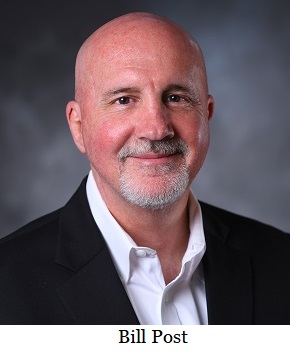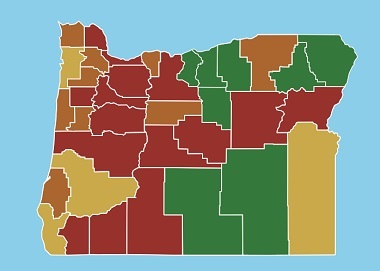





| Tuesday, September 2, 2025 at 6:00 am |
| hnno07 |
| 6w9q47 |
| Benton County Republicans’ Private Fundraising Event, “Bent-on Boots and Bling” with Trey Taylor |
| Friday, September 5, 2025 at 5:00 pm |
| Featuring Trey Taylor Music Private Event Friday, September 5, 2025 5:00-5:30 pm VIP Reception 5:30-8:00 pm Heavy Appetizers, Auction, Concert Red: $750 VIP Reception Front Row Table Sponsor White: $500 Table Sponsor Blue: $50 per person Limited Seating. Get Yours Now!!! Support Local Dress up: Bling, Cowboy, Patriotic Benton County Republican FUNDRAISER www.BentonGOP.org Get your tickets today at: https://www.bentongop.org/event-details/benton-county-republicans-fundraiser/form About Trey: Trey is the youngest African American Man in Country Music History. The Denver Post wrote "It's impossible to miss his enthusiasm. With a fondness for cowboy boots, gaudy colors and dazzling jewelry, Trey Taylor could stand toe to toe with any of the Pop, Country or even Rap contemporaries of his generation.“ |
| Trysting Tree Golf Club, 34028 NE Electric Rd., Corvallis |

A D V E R T I S E M E N T

A D V E R T I S E M E N T
"Once again, under the cover of darkness, several dozen people decided to damage and destroy multiple businesses in our downtown area resulting in a riot," Chief Chuck Lovell said. "The situation became extremely dangerous when a man brandished a knife at officers when officers were simply doing their job. The officers appear to have exercised restraint and professionalism and safely apprehended this suspect. I am proud of all of our employees who worked to minimize further damage and arrest some of the criminals involved."
| Post Date: 2021-05-02 14:49:26 | Last Update: 2021-05-02 15:44:29 |

A D V E R T I S E M E N T

A D V E R T I S E M E N T
| Post Date: 2021-05-01 13:59:37 | Last Update: 2021-05-01 17:21:43 |

A D V E R T I S E M E N T

A D V E R T I S E M E N T
Jared Mason-Gere, OEA Government Relations representative stated in testimony that, “Since the late 1990s, collective bargaining agreements across Oregon have systematically and purposefully omitted “meritâ€-based language in contracts due to causing difficult and chaotic layoff processes," said Jared Mason-Gere, OEA Government Relations representative. "We fear the language in HB 2001 will create a messy process of trying to reopen and renegotiate contracts. We also fear that this bill could create legal challenges that could set back affirmative hiring and retention practices even further. Legal precedent is very clear that hiring can be used to advance equity goals, but layoff cannot. It is also clear that hiring ratios can be used relative to qualified applicants but cannot be used for other populations such as population served.â€
Alisha Chavez a 6th year teacher of K-2 Intensive Skills for Portland Public Schools agreed with OEA. She has stated:“While, I fully agree with the intention of retaining Black, Indigenous, and Educators of Color, this bill has language that will harm our communities directly. It will change the language to get rid of seniority and replace with “merit†instead. Under the current bill language, an educator who might be fluent in French which is not a language used in my position would be able to bump me as they have more ‘merit’ than meâ€.
She is correct, in the bill, “Merit†is defines among other ways as the measurement of the ability and effectiveness of one teacher, as measured against the ability and effectiveness of another teacher, based on consideration of any of the following factors: Any languages spoken by the teacher that are not English. It says nothing about the additional language being applicable to the position, the school or needs of the students.“HB 2001 offers a reasonable solution to this challenge in requiring school districts, when implementing reductions in force, to retain an educator with less seniority if the educator has more merit and their retention is necessary to maintain the district’s diversity ratioâ€. said Max Williams
The bill is scheduled for additional public hearing, more opinions may be presented.| Post Date: 2021-05-01 10:29:36 | Last Update: 2021-05-01 13:37:14 |

| Post Date: 2021-04-30 19:37:11 | Last Update: 2021-04-30 20:09:35 |

“Deborah is the right person at the right time. Her leadership will steer the Oregon Elections Division in their ongoing work to ensure Oregonians have faith in our elections system,†Secretary Fagan said. “Deborah’s dedication to fairness and access for all Oregon voters is without question, and I am proud to have her on our team.â€
A recent survey has shown an ongoing need to build confidence and trust in Oregon’s election system.“It is an honor to join the Secretary of State’s office and lead the dedicated professionals within the Elections Division,†Scroggin said. “After a period of turnover and transition, I am eager to build stability and guide the team through modernization efforts to improve elections for every Oregonian. It is a pivotal time for elections in this country. Together with the 36 county clerks across Oregon, we will continue the hard work to ensure Oregon’s elections are a model for the nation.â€
Scroggin, who has a bachelor’s degree in political science from the University of Oregon and a master’s degree in public administration from the Portland State University, first joined the Portland City Auditor’s Office in 2012 as the Elections Officer for the City of Portland. She has most recently served as the Programs and Operations Supervisor.“I want to thank Brenda for her willingness to come back into public service and for her steady leadership and commitment to the agency and division,†Secretary Fagan said. “She has been a critical component to a smooth transition over the last several months.â€
--Staff Reports
| Post Date: 2021-04-30 12:25:40 | Last Update: 2021-04-30 12:42:57 |

“RESOLUTION DECLARING AN ECONOMIC, MENTAL HEALTH, AND
CRIMINAL ACTIVITY CRISIS DUE TO THE CURRENT COVID-RELATED
STATE EMERGENCY DECLARATION AND RELATING OSHA MANDATES
AND GUIDANCE.†The resolution passed a city council by a vote of 5-2
on March 23, 2021.
WHEREAS, the Oregon Governor’s Executive Order 20-03:
Declaration of Emergency due to COVID-19, and all subsequent
and related OSHA guidance, and present and future executive
order extensions of such are arbitrary, ineffective, and draconian;
and
WHEREAS, we as a municipality have no legal ability to summarily
flout these mandates, guidelines and enforcement by OSHA, and
therefore cannot protect any local business from State-directed
targeting, repercussions and penalties if such local business
personally chooses to;
and
WHEREAS, we also recognize that neither city, county nor state
government has the legal right to flout the Oregon State
Constitution or the United States Constitution;
and
WHEREAS that relate to the right to make personal
decisions, the lack of science to support the lockdowns, misinformation
used, a number of consequences leading to criminal behavior, and
business failures as a result of the mandates. To which they resolved:
NOW, THEREFORE, BE IT RESOLVED that we declare an economic,
mental health, and crime crisis due to the current COVID-related
State Emergency Declaration and related OSHA mandates and
guidances, as a means of loudly and symbolically supporting our
citizenry;
and
BE IT RESOLVED, the City will communicate in writing with the
Governor’s Office to encourage the full opening of our city and
county, re-categorization to low-population status, or suggesting
other means necessary to give our citizens relief from these
mandates;
and
BE IT RESOLVED, the City will support upcoming legislation,
dependent upon its straightforward and unharmful wording,
which provides reparations to business owners who have had their
businesses and income taken without compensation;
and
BE IT RESOLVED, the City will support future statewide ballot
initiatives that limit the duration and extent of Governor’s
emergency powers, which may create similar lock-down scenarios
during future emergencies, natural disasters, and pandemics;
and
BE IT RESOLVED, the City will share this resolution with other
Oregon cities, counties, and media outlets in the hope those
entities will also speak more loudly;
and
BE IT RESOLVED the City recognizes the citizenry of Baker City are
free, sovereign individuals within a Constitutional, Representative
Republic, not subjects or slaves, and will be recognized as such as
we firmly stand to represent them.
PASSED by the City Council of the City of Baker City, Oregon and
signed by the Mayor of Baker City, Oregon, this 23rd day of
March, 2021.
| Post Date: 2021-04-29 21:08:07 | Last Update: 2021-04-29 22:04:01 |

A D V E R T I S E M E N T

A D V E R T I S E M E N T
“The Legislature is in Session and we have a duty to engage. Oregonians need to have a balance of power between the separate branches of government again,†said House Republican Leader Christine Drazan (R-Canby.) “The decision to shut down businesses this week contradicts the newest CDC recommendations by not accounting for vaccinated individuals in Oregon. Furthermore, our businesses allow people to gather in places with standardized safety measures. There is no evidence that shutting them down will have an impact on transmission rates. If COVID guidelines in Oregon continue to ignore CDC guidelines to the detriment of families, kids and our main street businesses, we must restore the Legislature’s ability to hold the executive branch accountable.â€
“There’s zero evidence that we’re anywhere close to running out of hospital capacity in Marion County from COVID-19 cases,†added Marion County Commissioner Colm Willis. “We have plenty of PPE and because of vaccinations we aren’t seeing the same high level of severity in overall cases who need hospitalization. On top of that, there is zero data to suggest that restaurants have ever been a top contributor to COVID-19 transmissions. Shutting businesses down won’t change the numbers.â€
| Post Date: 2021-04-29 13:19:24 | Last Update: 2021-04-29 16:11:16 |

“We are not obligated to let the Governor railroad Oregonians without accountability and transparency,†Senate Republican Leader Fred Girod (R-Lyons) said. “Legislative Democrats have locked people out of their Capitol building, and are actively participating in the Governor's efforts to lock working Oregonians out of their jobs. With vaccinations ramping up, we should focus on lifting Oregonians up, not putting them out of work.â€
“Democrat’s refusal to take seriously their role as a co-equal branch of government is actively harming Oregonians,†Girod continued. “The Democrats are aiding and abetting the abuse against working Oregonians because it gives them more power. No one-party, no one person should have this much power. Republicans are ready to reestablish principles of checks and balances and uphold values of transparency in the legislative process to protect lives and livelihoods.â€
“The Governor’s emergency powers kept kids locked out of the classroom for over a year,†Girod added. “They have led to countless Oregonians losing their livelihoods. Legislative Democrats have shown no courage to stand against the Governor’s overreach. They have failed to stand up for working families.â€
“Democrats will tell you they are the party of the working class, but when given the opportunity, they have refused to stand up for their livelihoods. Republicans are standing shoulder to shoulder with working Oregonians,†Girod said.
| Post Date: 2021-04-29 12:01:35 | Last Update: 2021-04-29 16:17:31 |

“We are in the middle of the fourth surge of COVID-19 in Oregon, driven by more contagious variants of the disease. We must stop hospitalizations from spiking, so we can save lives, help our nurses and doctors weather this surge, and ensure no Oregonian is denied vital health care. Tomorrow, 15 counties are moving to the Extreme Risk Level, with nine more in High Risk. Hospitalizations nearly doubled in the last two weeks, to well over 300.
“At this time last year, there was so much we did not know about how to stop the spread of this deadly disease. Now, more than a year into the COVID-19 pandemic, we just have to hold on for a few weeks longer."
“I intend to fully reopen our economy by the end of June, and the day is approaching when my emergency orders can eventually be lifted. How quickly we get there is up to each and every one of us doing our part. Over 1.7 million Oregonians have received at least one dose of vaccine, and over 1.2 million are fully vaccinated against this deadly disease.
"Vaccinations are the best way to protect yourself, your friends, and your loved ones. They are also the quickest path toward lifting restrictions.
“Today, I am lifting Oregon’s executive order for price gouging related to the pandemic, because the days of hand sanitizer and, yes, toilet paper scarcity are far behind us. In the weeks to come, as the number of fully vaccinated Oregonians continues to grow, we will be able to lift the emergency orders and state regulations that have kept us safe for the past year.â€
| Post Date: 2021-04-29 10:18:42 | Last Update: 2021-04-29 10:39:19 |

The data is becoming clearer regarding the effectiveness of lockdowns and other government-imposed responses to the COVID-19 pandemic. Lockdowns are not helping reduce case counts or hospitalizations. Governor Brown’s actions are contributing to the host of negative consequences that result from lockdowns of our society, including, poor and declining mental health; suicide ideation (up 25% in 18-24-year olds); economic ruin for families and small businesses; kids being significantly set back in their education; and many students missing a pivotal part of growing up by not being able to participate in sports and other extracurricular activities.
My office received an email this week from a constituent who explained her son would not be able to compete in his high school track meet, nor take his senior class picture, because he was supposedly ‘exposed’ to COVID though he repeatedly denied being in contact with the original case. In other situations, busloads of kids are being quarantined because they have merely been on the same bus as a positive case, regardless of contact. In more dire circumstances, children have been deprived of the social interaction they need, hot meals, and the teachers and other adults who act as mentors.
My constituents have been drained physically, financially, and morally as a result of the lockdowns. Some have sold everything to make it by because they lost their jobs. Others are just now receiving their Pandemic Unemployment Assistance benefits after more than a year of waiting. This is heartbreaking and unacceptable.
The Oregon Health Authority and Governor Brown say we need to reinstitute lockdowns to prevent hospitals from becoming overwhelmed. That might make sense - if there were evidence that lockdowns worked. The truth is, I am hard-pressed to find a correlation between state management and success in slowing or flattening case rates – and so are researchers. We can see evidence of this failure both here and in other states.
In January, Newsweek reported a peer-reviewed study published in the European Journal of Clinical Investigation which analyzed coronavirus case growth in 10 countries in early 2020. “The researchers used a mathematical model to compare countries that did and did not enact more restrictive lockdown orders, and determined that there was ‘no clear, significant beneficial effect of [more restrictive measures] on case growth in any country’.â€
Dr. Tom Woods, a senior fellow at the Mises Institute, added to this point when he compared Los Angeles to Sweden:
“The graph that follows may seem a trifle unfair – aren’t Sweden and Los Angeles quite different from each other? Well, sure. But if we were truly facing a catastrophic problem that could be mitigated only by lockdowns, social distancing, and masks, shouldn’t there still be a major difference between relatively laissez-faire Sweden and heavily locked-down Los Angeles? Shouldn’t the difference in results between two places with such different policies absolutely overwhelm whatever other differences exist between them, such that the superiority of the Los Angeles approach should come through clearly in the chart? And yet...â€
In Oregon, we are seeing a spike in cases, but not in deaths. Texas is mask-free and 100% open while steadily declining in both new cases and deaths. Other states - Mississippi, Georgia, and Arizona - are loosening their restrictions and declining, or static, in cases as vaccine rollout nears the halfway point.
These points lead us to three conclusions:
We are nearing the 50% vaccination mark across the state. Most of our vulnerable populations, if they chose to, have received their shots. It is time to open Oregon. People will make decisions for their safety and the safety of their loved ones. It is not our job to do it for them. The vulnerable are vaccinated. People are ready to get back to living after a year of distress and hardship. It is time to stop the arbitrary-number-guidelines, OSHA at-will fines and permanent rulemaking for a temporary issue. My constituents, and I, have had enough.
Sincerely,
Vikki Breese-Iverson
State Representative
House District 55
| Post Date: 2021-04-28 20:36:14 | Last Update: 2021-04-28 21:37:14 |

“With health care costs skyrocketing, this simple bill to reduce the cost of a common cold medicine should be a no-brainer,†said Rep. Post. “We shouldn’t be asking people to jump through very expensive hoops by visiting a doctor to obtain a prescription to common cold medicine, especially when Oregon is the ONLY state requiring a prescription.â€
| Post Date: 2021-04-28 13:00:30 | Last Update: 2021-04-28 13:21:50 |

This message is a unique one as it represents the first time county governments have formally written to your
office in partnership with Oregon's hospitality industry. We write to you to ask for reconsideration of our
approach to virus mitigation measures at this stage in the crisis.
The virus continues to take a grave toll on our local economies with restaurants representing one of the key
cornerstones fueling connectivity, hope, and mental health for our residents. These are the places we break
bread, share inspiration, and encourage one another and the COVID crisis has stripped us of these life
essentials.
The environment in each county throughout Oregon is uniquely its own. And the experts of these regions live
and breathe their successes and failures. The job of a Governor in a crisis like this is an unenviable one. We
fully accept and understand the importance of hospital capacity including an assessment of available personnel
in order to adequately meet the demands of any health emergency.
We have reached the point where the vast majority of Oregon's population most prone to serious illness has
been successfully protected from the virus. And we must all admit a documented case today does not carry with
it the same weight as a documented case in the Fall when so many of our fellow Oregonians lacked access to
vaccine. The variants are indeed troublesome, and we share your concern for their spread. But shutting down
our restaurants and further depriving Oregonians of their right to make calculated community engagement risks
when the virus continues to spread elsewhere will not result in success.
The time has come to allow our communities the opportunity to move forward while embracing continued health
and safety precautions. Our people understand the risks associated with COVID and our businesses have
proven their ability to adhere to the highest expectations in safety, sanitation, and air quality. It is no coincidence
Oregon has not seen one instance of a super spreader event tied to our hospitality industry.
We ask for your support in putting all effort and momentum into vaccinations. We have the safety guidelines and
expectations clearly outlined for all industry sectors and have reached a point where those safety measures,
alongside our work to achieve vaccination goals, can carry us through the other side of this pandemic without
breaking our statewide hospital capacity.
You must know restrictions on specific types of businesses compared to others within our local communities is
creating rifts and dividing people rather than bringing Oregonians together. We can flip the script by removing
state mandated business restrictions on our communities while empowering our county health departments to
uphold high expectations for ongoing health and safety measures as recommended by the CDC.
We have reached our turning point and we thank you in advance for your consideration.
| Post Date: 2021-04-27 19:38:59 | Last Update: 2021-04-27 22:12:41 |